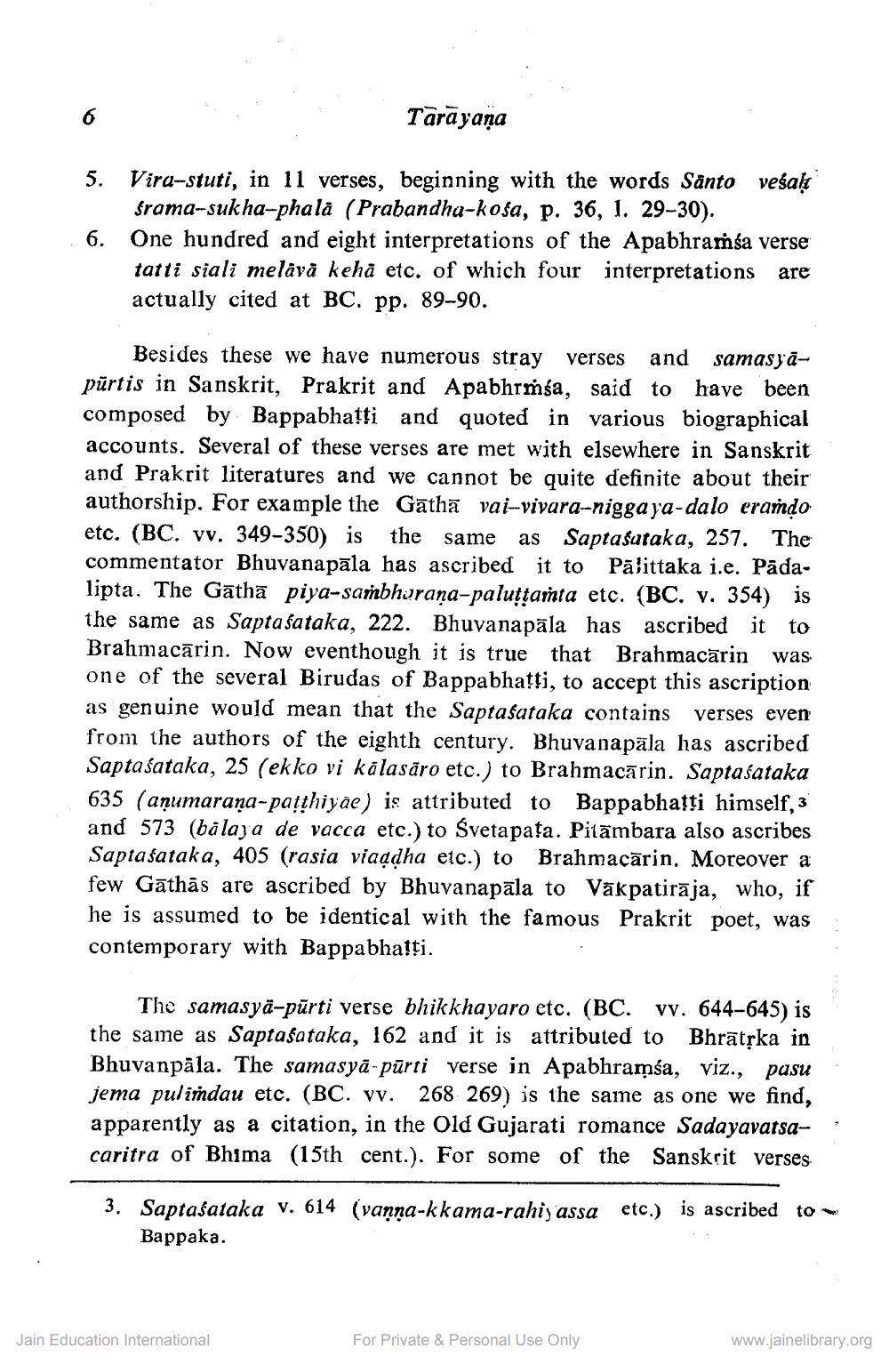________________
Tarāyana
5. Vira-stuti, in 11 verses, beginning with the words Santo vešaļ
frama-sukha-phala (Prabandha-kosa, p. 36, 1. 29-30). 6. One hundred and eight interpretations of the Apabhraṁsa verse
tatti siali melävä kehā etc. of which four interpretations are actually cited at BC. pp. 89-90.
Besides these we have numerous stray verses and samasyapürtis in Sanskrit, Prakrit and Apabhríša, said to have been composed by Bappabhatti and quoted in various biographical accounts. Several of these verses are met with elsewhere in Sanskrit and Prakrit literatures and we cannot be quite definite about their authorship. For example the Gāthā vai-vivara-niggaya-dalo erando etc. (BC. vv. 349-350) is the same as Saptašataka, 257. The commentator Bhuvanapāla has ascribed it to Pālittaka i.e. Pādalipta. The Gāthā piya-sambharana-paluttaṁta etc. (BC. v. 354) is the same as Saptašataka, 222. Bhuvanapāla has ascribed it to Brahmacārin. Now eventhough it is true that Brahmacārin was one of the several Birudas of Bappabhatti, to accept this ascription as genuine would mean that the Saptašataka contains verses even from the authors of the eighth century. Bhuvanapāla has ascribed Saptaśataka, 25 (ekko vi kālasāro etc.) to Brahmacārin. Saptaśataka 635 (anumarana-patthiyae
is attributed to Bappabhatti himself, 3 and 573 (balaja de vacca etc.) to Svetapata. Pitāmbara also ascribes Saptaśataka, 405 (rasia viaądha etc.) to Brahmaçārin. Moreover a few Gathās are ascribed by Bhuvanapāla to Vāk patirāja, who, if he is assumed to be identical with the famous Prakrit poet, was contemporary with Bappabhatti.
1.
ad
The samasyä-pārti verse bhikkhayaro etc. (BC. vv. 644-645) is the same as Saptasataka, 162 and it is attributed to Bhrātşka in Bhuvanpåla. The samasya-pārti verse in Apabhramsa, viz., pasu jema puliñdau etc. (BC. vv. 268 269) is the same as one we find, apparently as a citation, in the Old Gujarati romance Sadayavatsacaritra of Bhima (15th cent.). For some of the Sanskrit verses
etc.) is ascribed to
3. Saptašataka V. 614 (vanna-kkama-rahiyassa
Bappaka.
Jain Education International
For Private & Personal Use Only
www.jainelibrary.org




